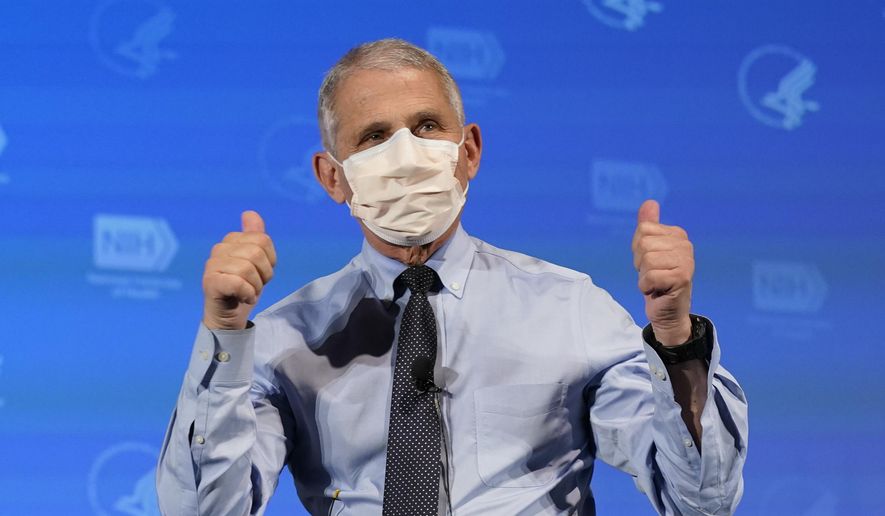Dr. Anthony Fauci, the nation’s top infectious disease expert, admitted in a new interview that he’s been intentionally moving the goal posts on his recommendations regarding herd immunity based on what he thinks the American people are ready to hear.
Herd immunity, or the percentage of a population that acquires resistance to the coronavirus through infection or vaccination, has been widely estimated at roughly 60 to 70 percent for the coronavirus since the start of the pandemic.
Dr. Fauci, a member of the White House’s coronavirus response, also cited that number in the beginning of the pandemic but said it would be about “70, 75 percent” in an interview about a month ago, The New York Times reported. Last week, he reportedly told CNBC “75, 80, 85 percent” and “75 to 80-plus percent.”
Dr. Fauci told The Times in an interview published Thursday that he had slowly but deliberately been moving the goal posts, partly based on new science, and partly on his gut feeling that the American public was ready to receive the information, which is that 70-90% herd immunity should be achieved before the country can go back to normal.
He said he hesitated to state a number as high as 90% weeks ago because many Americans still seemed skeptical about vaccine.
“When polls said only about half of all Americans would take a vaccine, I was saying herd immunity would take 70 to 75 percent,” Dr. Fauci, who took his first dose of Moderna’s COVID-19 vaccine Tuesday, told The Times. “Then, when newer surveys said 60 percent or more would take it, I thought, ’I can nudge this up a bit,’ so I went to 80, 85.
“We need to have some humility here,” he added. “We really don’t know what the real number is. I think the real range is somewhere between 70 to 90 percent. But, I’m not going to say 90 percent.”
Dr. Fauci said he wouldn’t state that number because it would potentially discourage Americans from getting the vaccine, The Times reported.
• Jessica Chasmar can be reached at jchasmar@washingtontimes.com.




Please read our comment policy before commenting.